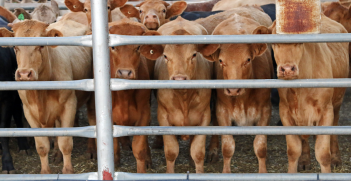China’s Bad Behaviour a Wake-Up Call

China’s disruption of an intergovernmental meeting last week brought international geopolitics to Perth, but it was largely ignored in Western Australia. Can Australia afford to continue accommodating Beijing’s bellicose behaviour?
Chinese officials from Beijing orchestrated the disruption of an intergovernmental meeting on the diamond trade, The Kimberley Process, held in Perth on May Day, apparently in annoyance at Taiwan’s invitation as observers. Chinese delegates interrupted the indigenous Welcome to Country ceremony and hectored the Australian chairs to the point that the meeting was suspended. A welcome speech by Minister for Foreign Affairs Julie Bishop had to wait until the Taiwanese delegation was expelled at China’s insistence—even though the Taiwanese were invited by Australia as the meeting’s hosts. The meeting went ahead only with our acquiescence to China’s demands, but at what cost?
In choosing to accommodate China, rather than risk minor diplomatic damage at a trivial intersessional meeting, Australian officials made a choice that our government and business leaders have been making for years. That choice is to look away from China’s increasingly bellicose international behaviour, even when it offends us and our values. Economic reality—China is by far our most important trading partner, and our economy now rises and falls with China’s—apparently dictates that we prioritise smooth relations with China over all else.
This short-term thinking is evident not only in foreign affairs, but also in our business community. Many West Australian corporate leaders have been admirably vocal on issues like corporate social responsibility, indigenous rights, and anti-slavery, yet silent on China.
This is a Faustian bargain and one which we will live to regret. To understand why, we need to see Chinese behaviour in its true context. China’s increasingly aggressive behaviour in relation to Taiwan (a democracy with which Australia has strong trading ties but which China sees as a renegade province) and the South China Sea (where China’s military has created ‘unsinkable aircraft carriers’ on coral atolls in international waters) is largely being driven by domestic politics.
President Xi Jinping—’Xi who must be obeyed’—has launched a crackdown on dissent at home, imprisoning lawyers, threatening journalists and intimidating reformers. This crackdown has made loyalty to himself and the Communist Party the single most important criteria for advancement, with nationalism the great organising principle.
Xi is attempting to replicate the kind of imperial rule under which China was governed for most of the past 2,000 years. In Asia, China’s attitude to other countries is similarly reverting to the ‘tributary model’ of international relations which prevailed for hundreds of years under the Ming dynasty. The tributary system required China’s neighbours to acknowledge China as the core state to which all others must pay obeisance. In return, China would bestow trading and other privileges upon these subordinate entities in mutual recognition that the hierarchy reflected the emperor’s “mandate of heaven”.
Today, China sees a re-invigorated tributary system as the natural model for its relations with other countries in its ‘sphere of influence’, which now includes Australia. We can thus expect more examples of the standover tactics on display in Perth this week, unless Australia is prepared to push back. And to be sure, if and when we do we will be ‘punished’ as insubordinate.
To her credit, Minister for Foreign Affairs Julie Bishop did make her displeasure at the Kimberley Process fracas known, but this was brushed aside, with Beijing claiming its behaviour was “perfectly reasonable and fair” in light of Australia’s “indifference” to Chinese complaints about Taiwan’s involvement.
This should be a wake-up call for everyone involved in Western Australia’s economically vital relations with China. That is if they know about it. The Kimberley Process incident was covered in the Sydney Morning Herald, The Australian, and ABC Online, as well as in the UK, the US and a number of countries in Asia (excluding China, of course). But it was almost completely missing in Western Australia itself, despite the incident taking place in Perth and involving a prominent indigenous figure, Phil Walley-Stack, major local mining companies, and of course the most senior Western Australian in government, foreign minister Julie Bishop.
Incredibly, as Danielle Cave from the Lowy Institute observed, the story was broken in Zimbabwe and only later picked up by the Fairfax press. It appears to have gone unreported in either the West Australian, the Sunday Times and the local broadcast media.
This brings to mind the ‘tree falls in the forest’ question: What happens if geopolitics comes to Perth but nobody reports it?
Professor Benjamin Reilly is Dean of the Walter Murdoch School of Public Policy and International Affairs at Murdoch University.
This article is published under a Creative Commons Licence and may be republished with attribution.




